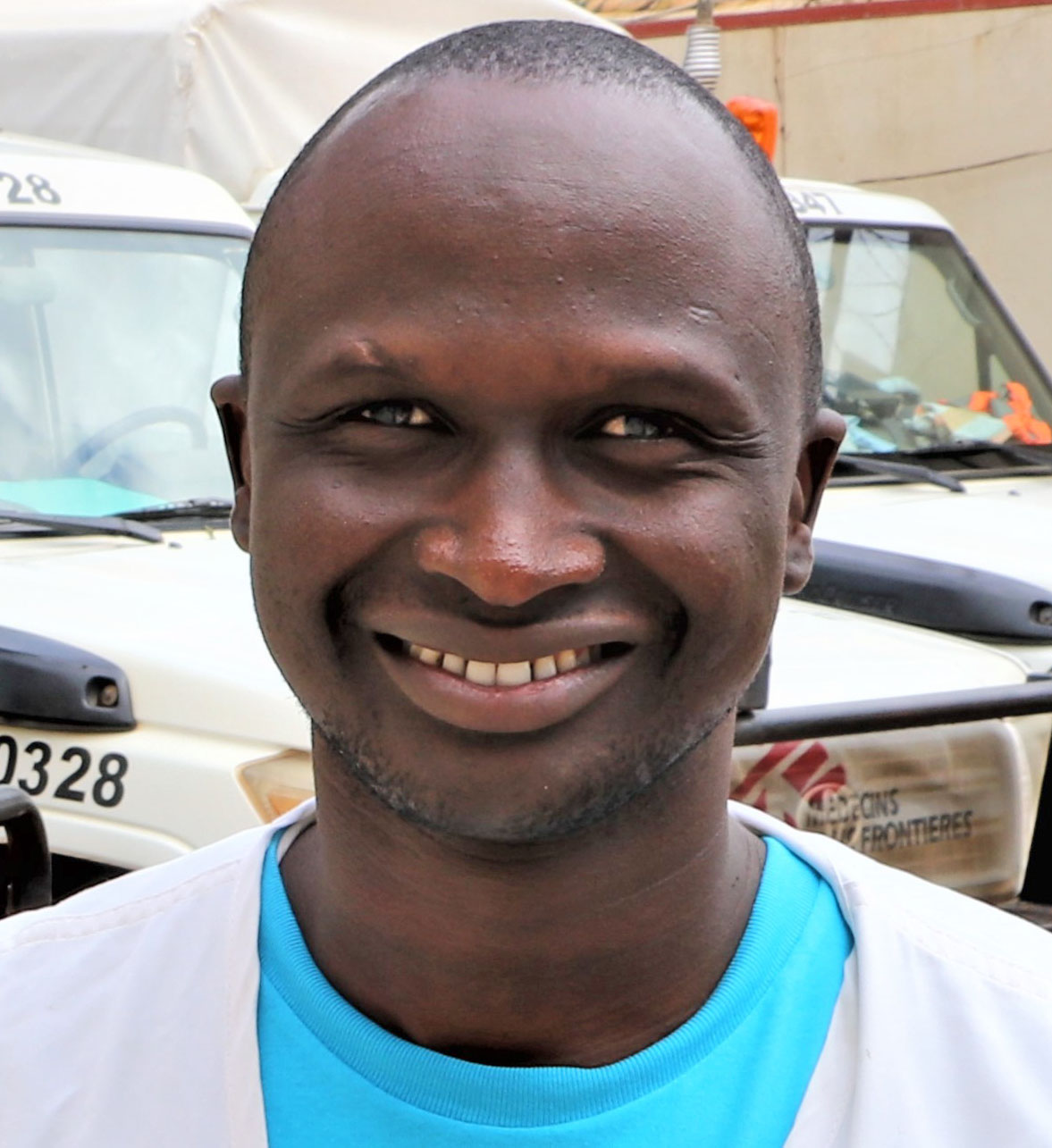Learn more about our lifesaving work in South Sudan.
Mamman Mustapha

Mamman Mustapha
Mamman is MSF project coordinator in Old Fangak, South Sudan.
I arrived at the hospital in Old Fangak in April 2019, during the dry season. My first impression was that it is a very isolated area, a huge swamp. There used to be about 5,000 people around there, but now there are more than 20,000, since many families came in to escape armed conflict in recent years. Seeing the place for the first time, I remember thinking that it was exactly the kind of place to do humanitarian work.
There are no roads or cars, only boats. The water is often at chest level, so friends or family sometimes carry people with medical needs from the villages to the hospital. Or they send word and we send a boat as an ambulance. This happens almost every day, sometimes three times a day.
There is no phone network, so people usually send the strongest person available to walk fast and inform us that someone needs medical care, or they ask fishermen or commercial boats on the river to tell us. People are very good about passing information—they are traumatized, they witnessed the war, and they were displaced many times. Now when something is happening they share information very quickly.

Since 2018, there is no active war around Old Fangak, but there are continuous conflicts among the various clans and families, and recently we have witnessed an increase in violence in the communities. Before, you would see fewer people with guns, but now almost everyone carries a gun. We are now treating more violence-wounded people in the hospital than when I arrived.
Old Fangak is a small village but it is a hub for the region because it has the hospital and a daily market, which is expanding with local food and household items. People in Old Fangak are very friendly and are always offering a cup of tea. I often sat in the market on the weekends to talk and build relationships between MSF and the community.
We see all kinds of medical needs in the hospital, since it is the only one in the area. Malaria is very common and so is malnutrition during the hunger gap between planting and harvest. We see obstetrical emergencies, respiratory tract infections, tuberculosis, HIV and other chronic diseases. During the rainy season, we see quite a few patients with snakebites, because there are many poisonous snakes and people are vulnerable, sleeping outside, working in the grass, going barefoot.

Life is always precarious in these communities, even when there is not a humanitarian crisis. People rely heavily on humanitarian food distributions several times a year. Most do subsistence farming, but it is often not enough and there are few paid jobs. This year the rainfall has been less than in previous years, and we are worried about a food shortage, while on the other hand, there is a risk of flooding as everyone lives near the water.
I had been planning to stay for nine months as MSF's project coordinator, but then I offered to stay another three months, to see every season of the year. I kept working to understand the culture, to better understand the context and the needs of the people we are serving. I felt very motivated because we manage the main medical center in the region. The needs and the relevance of our work are categorically obvious.

Then the COVID-19 pandemic was declared and I stayed for another five months. There was a lockdown in the country, and it was harder to get supplies and new staff. We focused on maintaining our essential activities at the hospital.
Old Fangak is very isolated, and people did not believe COVID-19 was real. We have about 150 local staff and we worked with them to wear masks, maintain social distancing and increase handwashing. There is no testing available to confirm COVID-19 cases, but we saw our first two suspect cases in May and June, and we have two beds to treat patients and one person died. We keep two beds to treat patients with suspected COVID-19 safely in isolation. But these days, COVID-19 is one of many medical needs we are concerned about.

I was glad I could stay 17 months, so I could understand the region as well as I could. The rainy season is my favorite time because it is the most challenging. There is mud everywhere, and sometimes our supply plane cannot land and you depend on the local food. You see all the beautiful insects and the sunset looks like fire in the sky. I enjoyed the assignment! It is challenging and interesting, and almost never boring. On the outside it looks like a small community hospital project, but it is a great example of why MSF is needed, and why I joined MSF.




